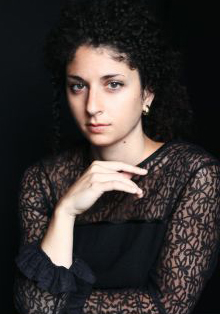Debussy and his influence is the title of the concert that the French pianist Ida Pelliccioli presents next Friday at 8 p.m. at the Theatre of the French Institute in Madrid, in which she will also offer music by the composers Rameau and Albéniz. Booking is essential at this link.
Ida Pelliccioli was born in Bergamo, Italy. She studied at the Conservatoire de Région de Nice and at the Ecole Normale de Musique-Alfred Cortot in Paris. During her studies, Ida Pelliccioli received several scholarships, including one from the Zygmunt Zaleski Foundation and one from the Albert Roussel Foundation. Ida Pelliccioli received a double diploma in acting and pedagogy from the Ecole Normale de Paris. She received artistic guidance from Norma Fisher, who teaches at the Royal College of Music in London, Stephen Gutman, and is one of the few students of the Cuban pianist Jorge Luis Prats. She chose to avoid the international competition circuit and, before becoming a full-time pianist, received a double Master’s degree at the Sorbonne University in Italian literature and Ancient Greek history, specialising in the practice of music during the Hellenistic period.
The concert programme aims to create an echo between Debussy’s music and the music of two composers who influenced her. On the one hand, Rameau, whom Debussy described as the pinnacle of the French tradition. On the other hand, Albéniz, an example of how Debussy found an important source of inspiration to reinterpret music from foreign lands. Spanish idioms inspired some of his liveliest music.
Three of the pieces chosen in this programme are united by the same element of inspiration: the Alhambra palace in Granada, Spain. La Vega was also named Suite Alhambra, La Puerta del Vino refers to the door of the same palace in Granada. The main source of inspiration for this piece was a postcard of the gate, sent to Debussy by fellow composer Manuel de Falla. And finally, Soirée à Grenade (1903) uses the Arabic scale and imitates the strumming of the guitar to evoke images of this same land and heritage. Masques (1904) has also been described as Spanish-inspired, and completes this selection of recreations of a land that Debussy never visited. His Spain was an invented land, a land of the imagination.






